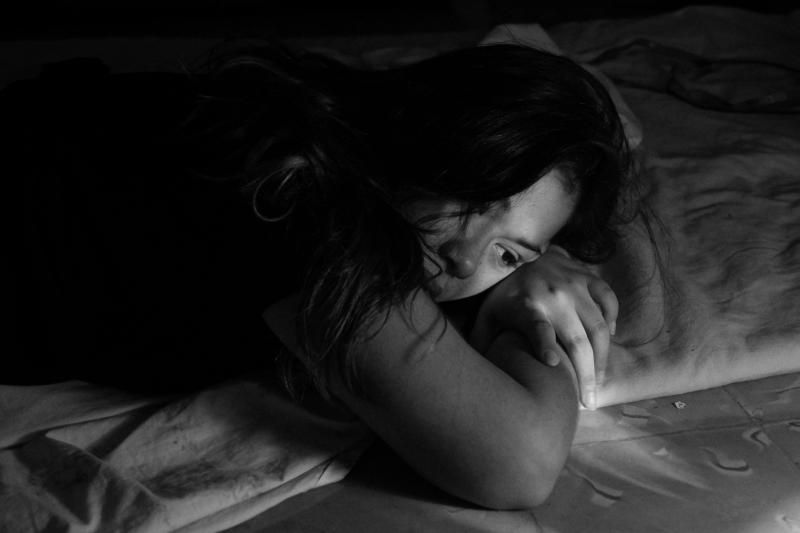
A New Perspective on Bathsheba by Grace Holik
The popularity of Hallmark Christmas movies confirms–we love when those great love stories end "and they lived happily ever" but we loath when the story ends with breakups and broken hearts. That's why Hallmark movies never do. Authors and commentators seem torn between the idea of David and Bathsheba as an epic forbidden romance or a forced assault of power. I would argue for the latter. This isn't a love story between a sinister temptress who seduces a dashing king as they both consent to a riveting affair. Instead, this story demonstrates the misuse of power and deceit, as sexual lust takes precedence over the value of human life.
The story is quite alluring but often misunderstood, resulting in more heartache and devastation than usually portrayed in contemporary romantic versions. As I reread and researched the account of David and Bathsheba, I reached a conclusion at odds with typical interpretations.
The idea was engrained in me that both David and Bathsheba shared equal blame. Both wanted this “affair.” As my perspective has shifted, I no long blame Bathsheba. Instead I long for us to see her as a woman made in the image of God rather than an object to be used for pleasure.
Have you been taught to view Bathsheba as a temptress? Consider a new perspective. One resource was particularly helpful, Vindicating the Vixens, edited by Dallas Seminary professor Sandra Glahn. Sarah Bowler, author of the chapter on Bathsheba, researched current bathing customs needed to draw likely conclusions and perhaps help us gain a fresh perspective on Bathsheba's identity.
One of the most used arguments for Bathsheba as a temptress come from the beginning of the story in 2 Samuel 11:2, “It happened, late one afternoon, when David arose from his couch and was walking on the roof of the king’s house, that he saw from the roof a woman bathing; and the woman was very beautiful.”
Why would a woman bathe naked on a roof? Isn’t she obviously attempting to seduce the king? Evidence from the text doesn't actually support this claim.
Four points, taken from Sarah Bowler’s chapter, must be considered:
1. It was not culturally acceptable to bathe naked in public.
2. “Bathing” can mean washing the face or arms while fully clothed.
3. Bathsheba was likely in an enclosed courtyard.
4. Scripture does not suggest that Bathsheba bathed intentionally in David’s view – even if she did, the choice to sin was still David’s.
Learning about bathing customs helps us shift our thinking. She may not have been an intentional seductress, but instead a woman tending to a routine washing in her own home.
As we move on in the story, 11:3 says,
“And David sent and inquired about the woman. And one said, “Is not this Bathsheba, the daughter of Eliam, the wife of Uriah the Hittite?”
Pause for a moment and think about the magnitude of this introduction.
Bathsheba is a wife and her husband is away at war; alone, she is at the mercy of the king. And the king probably knows her father and husband personally. David is attracted to her and describes her as “beautiful”, but she is so much more than a beautiful woman. She is not an object to enjoy – she is a person made in the image of God. A daughter. A wife. Because she images God she possesses absolute dignity. David disregards her identity and allows his own lust to drive his decisions.
We see the magnitude of his lust in the next verse, 11:4,
“So David sent messengers and took her, and she came to him, and he lay with her. (Now she had been purifying herself from uncleanliness) Then she returned to her house.”
Don’t miss the details of this verse. David sent messengers (plural) and took her, then it says he lay with her. I don't believe Bathsheba had the option to “just say no.” She is at the mercy of the king, who has ultimate power and authority and has chosen to use it poorly.
Later Bathsheba becomes pregnant and this event begins an even greater downward spiral of deceit and heartache. In the end Bathsheba loses a husband that David has murdered, a child who dies as a consequence, and she must marry the man whose sin has inflicted all this pain.
We know that ultimately God extends mercy to David. We know his story is redeemed as he recognizes the weight of his sin and deeply grieves. I long for Bathsheba to be vindicated as well. Consider her courage as she was forced to live out the consequences of David's sin.
Her story is a catalyst and call to the church to consider the tremendous pain experienced by men and women who are the victims of sexual assault.
How do we, as the church, learn from Bathsheba’s story and help victims of abuse? Here are a few practical steps:
1. Don't expect potential victims to “just say no” or place blame on them for the sin of someone else.
2. Prevent leaders from abusing their power by requiring they be accountable to others. Don't rationalize the sin of those in power.
3. Don't assume that admired leaders are not vulnerable to abusing their power. Often it’s “good” people who take advantage of others and are not held accountable for their actions.
4. Listen to the story of victims but don’t make assumptions or place blame. Give victims a voice and encourage them to tell their story to trusted leaders, counselors, or public officials. Pursue justice and healing for all.
If you desire more information, and further study, please read Vindicating the Vixens. If you, or someone you know, has been devastated by sexual assault please know your voice, and your life, have infinite value and worth.
Grace grew up in the country outside of San Angelo, TX. She graduated from Angelo State University with a Bachelor of Science degree in Psychology and from Dallas Theological Seminary in May 2018 with a Masters in Christian Education. She is currently the Associate Director for the Baptist Student Ministry at the University of Texas at Dallas.




